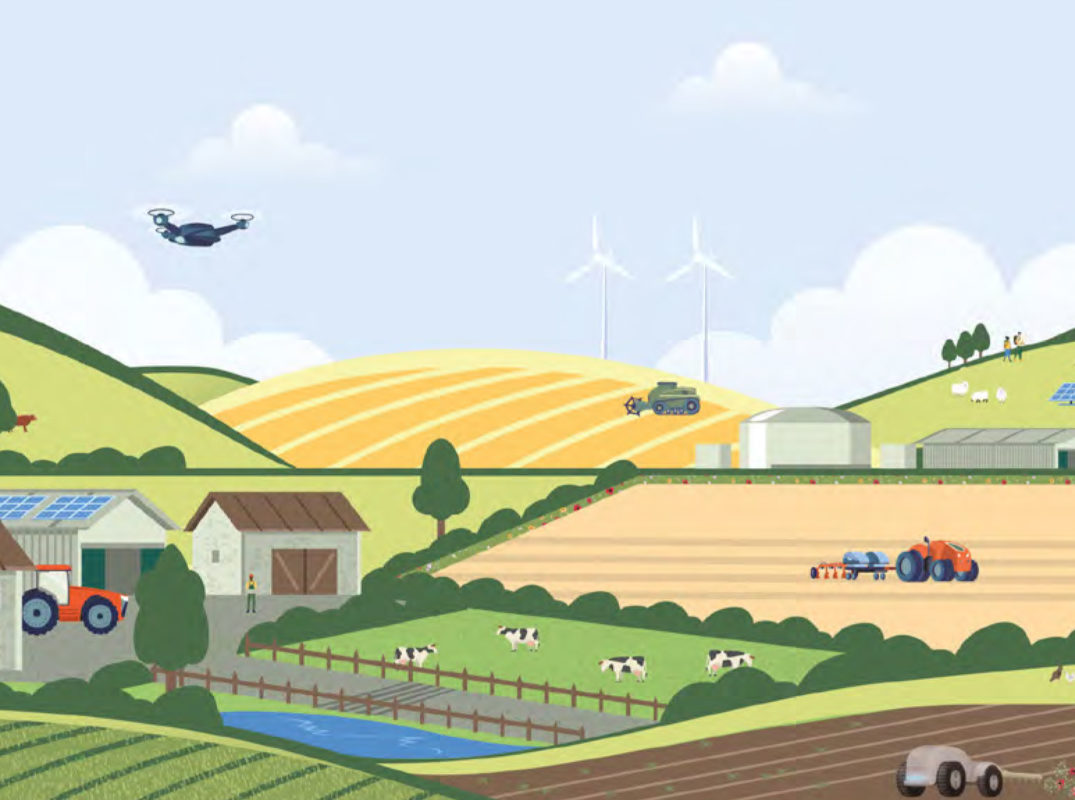
- Categories:
- News
- /
- Announcement
Cenex contributes to RASE’s Farm of the Future: Journey to Net Zero reports
The Royal Agricultural Society of England today launched a suite of reports detailing advice and guidance for farmers on their journey to net zero farms.
Keith Budden, Head of Business Development at Cenex, was part of the suite’s editorial team, and Nick McCarthy, Technical Specialist at Cenex, co-authored sections of the main Farm of the Future: Journey to Net Zero report, and the accompanying Decarbonising Farm Vehicles and Future Fuels report.
The suite was commissioned by RASE to pull together the latest science and its on-farm application, show what farmers can realistically achieve, and to identify practical steps they can take to decarbonise the farming industry, and follow a COP26 policy brief which was published by the RASE in October 2021.
Farmers and land managers have a key role to play in developing a more circular, resource-efficient rural economy. Many farmers need help, advice, and support if they are to embrace transformational change, adopt new ideas and technologies, while make fundamental adjustments to the way that they farm.
The reports are practical in their guidance, highlighting the emissions reduction options available to farmers and growers, including improved resource management, renewable energy generation, use of low emission farm vehicles, replacement of fossil fuels and adoption of digital technologies.
The Decarbonising Farm Vehicles and Future Fuels report suggests that there are several candidates for farming’s ‘fuel of the future’: electricity, biofuels (as liquid or gas) including on-farm biomethane generation/supply, and potentially hydrogen.
Reports:
Farm of the Future: Journey to Net Zero report
Decarbonising Farm Vehicles and Future Fuels report
The emergence of digitally controlled driverless (autonomous) technology and the need for more environmental and resource-sensitive field operations will lead to a revolution in vehicle design, and lighter, smaller automated vehicles, which are more suitable for electrification, could become more widespread on farms.
Nick McCarthy said: “The need to transition away from fossil fuels has triggered the development of alternative, low emission fuels and is leading to the redesign of powertrains for farm vehicles.
“Given that many farm vehicles have working lives of 15 to 20 years, capital investment decisions in the next decade will have limited opportunities for revision before 2050.
“Biofuels and biomethane offer a short-to-medium term opportunity to reduce carbon emissions while zero emission technologies develop specifically for farming applications.”
Commenting on the report Phillip Gready, Chairman of RASE said: “British farmers can play a pivotal role in developing sustainable land use which meets the objectives of feeding the population, whilst sequestrating more carbon than we emit and improving soil health, water quality and biodiversity.
“For transformation to happen, farmers need practical guidance on the decarbonisation options based on currently available and emerging technologies, along with independent advice and technology demonstration sites.
“Policy makers must work more closely together and engage with farmers and land managers to deliver a generational shift in farming practices.
“This includes deployment of new technologies – including those developed in the UK – that meet farmers’ needs.
“It extends to the replacement of fossil fuels – especially subsidised ‘red’ diesel – with low emission alternatives.”
The Farm of the Future Report along with other specialist papers can be found at Reports – RASE.